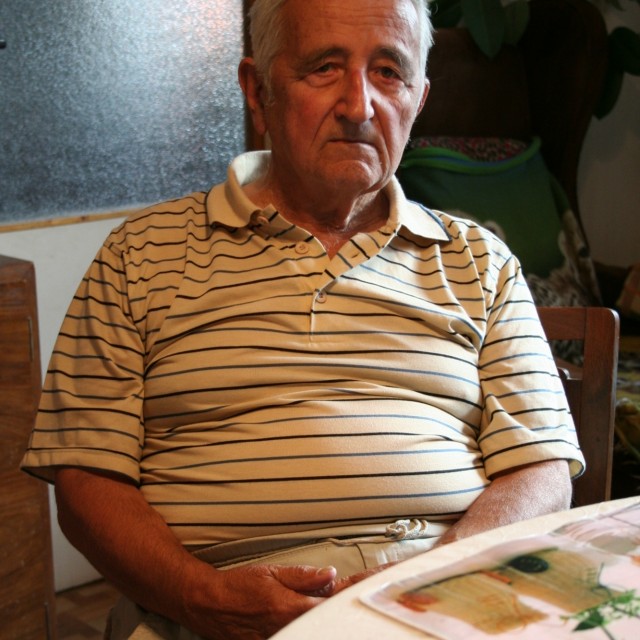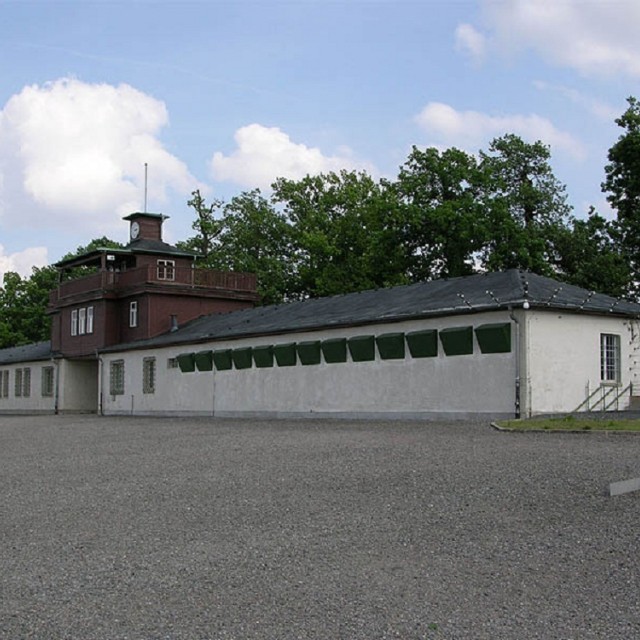They say you could survive at Buchenwald
Miloslav Moulis spent two years in the Buchenwald concentration camp. He was taken there from Auschwitz in 1943. “The camp worked as a small town. Selected prisoners made it run. Initially, they were criminals, but political prisoners got to take better positions later on. And that was much better because they would help other prisoners too,” remembers Miloslav Moulis. If you knew someone in a ‘good’ division, you had a chance to make it there too. “There were many Czechs in the camp, around four thousand. We all would help each other somehow. For example, when someone ill or old came, they placed them in a division that, say, repaired socks so they would be in the warm and without having to work hard.” German political prisoners were a special sort. “They were social democrats and communists. Hitler had them imprisoned back in 1933 when he grabbed power. They had been in the camp since its inception and they could even change a prisoner’s name to save them from deportation to Auschwitz,” Miloslav Moulis remembers.
Hodnocení
Abyste mohli hodnotit musíte se přihlásit!
Trasy
Příběh není součastí žádné trasy.
Komentáře

Miloslav Moulis
Miloslav Moulis was born April 30th, 1921 in Prague. His father was a lawyer (in World War I, he was a legionnaire in Russia, where he was captured in 1918 by the Communists and sentenced to death, but he managed to escape punishment) and worked for the central office of Czechoslovak Railways. During the occupation, his father was captured again, this time by the Nazis (for illegally working on the petition “Loyal We Remain”); he was unable to escape punishment and was executed in 1943. The family lived in Prague but did not stay very long, and, in the year 1923, moved to Pilsen, where Miloslav attended the local primary school and later grammar school (Masaryk lyceum). The family raised the kids with patriotic spirit, and young Miloslav became interested in public life, wanting to become a journalist. When students formed the Association of the National Movement of Young Workers shortly after the occupation, he became a member and was later arrested by the Gestapo for activities relating to the group (the association lasted less than a year). Some members of the association fled together to foreign resistance, and those who stayed were arrested on May 29th, 1940. Miloslav Moulis was sentenced in the People’s Court to two and a half years in prison. He was released for Christmas in 1942, however, his freedom was short-lived and he was arrested again. This time, there was no trial, and he was sent straight to the Mala pevnost at Terezin, and later Auschwitz. Fortunately, he didn’t remain there long, and he was sent to Buchenwald, where he spent the rest of the war. On April 11, 1945, the camp was liberated by Americans. After the war, Moulis returned home (his mother had already died in 1939, and he had two brothers who lived with his aunt) to Pilsen and began working for the newspaper. In the year 1946, he moved to Prague. Since then, he has been active in literature (nonfiction about World War II, especially young people in resistance movements and concentration camps). In the year 1966, he received and invitation from Ludvik Svoboda to collaborate on writing his memoirs. This project lasted until 1969, when the group (including two other historians) dissolved. Until 1993, he worked as the editor of the National Liberation in the Association of Freedom Fighters. Miloslav Moulis continues to actively publish.




